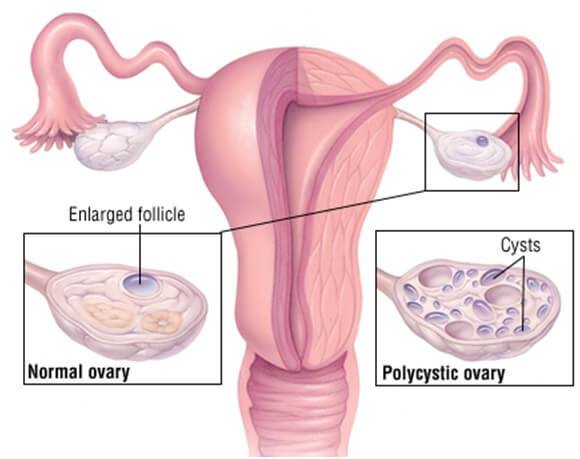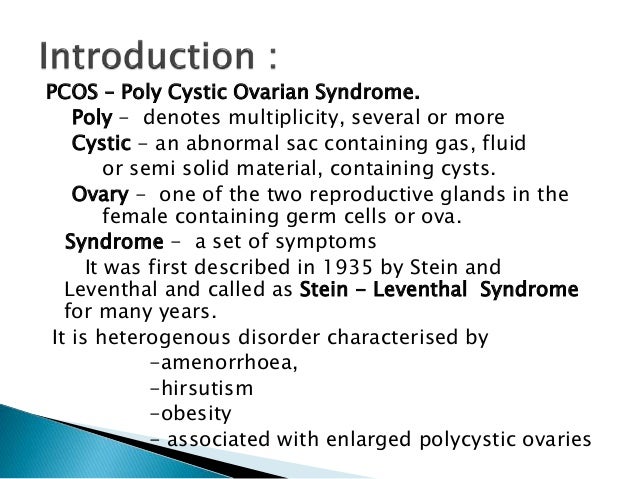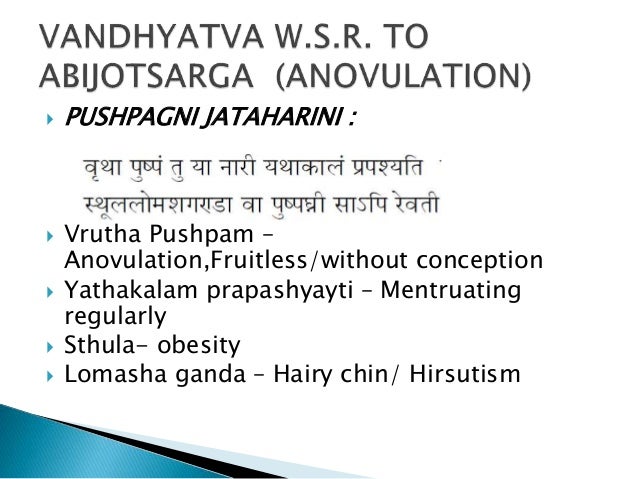108 Glen Osmond Road, Parkside


Polycystic ovary syndrome is a condition in women characterized by irregular or no menstrual periods, acne, obesity, and excess hair growth. PCOS is a disorder of chronically abnormal ovarian function and abnormally elevated androgen levels, male sex hormones that are usually present in women in small amounts. The name polycystic ovary syndrome describes the numerous small cysts (fluid-filled sacs) that form in the ovaries. However, some women with this disorder do not have cysts, while some women without the disorder do develop cysts.

Ovulation occurs when a mature egg is released from an ovary. This happens so it can be fertilized by a male sperm. If the egg is not fertilized, it is sent out of the body during your period. In some cases, a woman does not make enough of the hormones needed to ovulate. When ovulation does not happen, the ovaries can develop many small cysts. These cysts make hormones called androgens. Women with PCOS often have high levels of androgens. This can cause more problems with a woman's menstrual cycle. And it can cause many of the symptoms of PCOS.
Symptoms of PCOS:

Ayurvedic View :

According to Ayurveda, PCOS is a Kapha Disorder. PCOS is due to kapha blocking vata and pitta; hence, movement is obstructed, and the transformation process is suppressed. Artava dhatu affected by the heavy sticky qualities of kapha and Ama creates sroto dushti in artava vaha srota. The accumulated kapha is expressed in the formation of the cyst in the ovary as it takes on a heavy, white, sticky quality, expressing kapha and ama. Artava-kshaya, which can be correlated with PCOS, has been described as a deficiency or loss of artava; artava does not appear in time or is delayed, is scanty, and does not last for three days. Pain in the vagina can also be seen.

Considering dosha dominance, it can be of the following types:
Treatment approach:
Ayurveda treatment for PCOS is balancing the kapha dosha with the use of diet, herbal medicines, uterine detoxification, and lifestyle. Balancing the diet, lifestyle, and medicines helps to achieve early recovery from the symptoms.
1. Correcting the hormonal imbalance: There are many herbs useful in correcting the hormonal imbalance. Ashoka (Saraca asoca), and Dashamoola (a group of ten herbal roots), a group of herbs used in preparation of sukumaram kashayam like Ashwagandha, Eranda, Shatavari, etc., are useful in correcting the hormonal imbalance.
2. Treatment of Obesity: Treatment of obesity and specifically against cholesterol can be achieved by using Ayurveda herbal remedies, plus diet and lifestyle changes.
3. Treatment of Insulin Resistance: Treatment for insulin resistance involves a time-consuming approach with effective Ayurvedic treatment and diet/ lifestyle changes, including exercise.
4. Treatment of cysts: Many herbs like kanchanar, punarnava are very helpful in dividing cysts or extra growths in the ovary.
Most commonly used herbal formulations in PCOS are:
Certain yoga exercises like Vajrasana, Sinhasan, Shalabhasan, and Sarvangasana are also helpful under the supervision of an Ayurvedic doctor.
If you are suffering from Polycystic ovary syndrome and related problems, contact our Ayurvedic Qualified doctors at Life Line Ayurvedic Herbal Clinic to get the best Ayurvedic Natural treatment without any side effects. CONTACT
Disclaimer : Sandeep Kumar and Anupam Vasudeva are not GP, they have Ayurveda medical degree from India where it is considered equal to any other medical degree. This qualification is recognized in Australia by vetassess governing body as Complementary Health Therapists. Life Line Ayurvedic Herbal Clinic does not claim to cure a disease or terminal illness and does not create any unreasonable expectation of beneficial treatment. Ayurvedic medicines and treatments are generally considered to be safe but rarely may be associated with possible adverse reactions in individual cases. We recommend seeking urgent medical attention in the case of an adverse reaction. This website provides you with information. You must contact your Ayurvedic or another health professional before you apply them. Read More